For a long time, whenever I pictured someone from the southern United States, I drew two unfavourable portraits: The clueless redneck who lives on a trailer park and spends his day shooting at cans, save for the odd roll-in-the-hay with his wife/sister. Or the distinguished southern belle and gentleman, sitting on the terrace of an old plantation house whilst slaves toil away on the land.
It’s true that stereotypes have some basis in reality, but ninety-nine percent of the time there’s a happy – or complicated – medium. On a previous cross-country trip, I spent a day on a ranch with a self-proclaimed redneck, manically firing an AR-15 at shop mannequins. But he was neither swigging moonshine or wearing a wifebeater and, though we differed politically, his views weren’t as black and white as I would have expected. So, having crossed that stereotype off the list, I was keen to look at the other end of the spectrum. To break into the world of southern high-society.
As you can imagine, it isn’t exactly a doors-open policy so I was going to have to get inventive. I had learnt through a little research before leaving London that there are a number of old (by American standards), exclusive members clubs in The South which cater to the great and the good. One of the most prestigious is The Oglethorpe Club, named after the founder of Georgia and the man who laid out the plan for Savannah, the city where I would be staying. There was only one problem: with no reputation and no contacts, how would I get in?
I decided to do what well-to-do Victorians did when they travelled. It wasn’t uncommon for them to carry a ‘letter of introduction’ from someone influential and respected which they could present to other important people as a way of vouching for their character. Given The South’s reputation for good manners and tradition, I figured that if I had such a letter, dressed the part and applied just the right amount of charm, I could talk my way in. So I took drastic measures. A few days before I left, I mocked up a letter from The Garrick Club in London; the prestigious society for those in the arts whose members include Stephen Fry and, historically, Charles Dickens and Lawrence Olivier. I spent one of my lunch hours in an arts-and-crafts shop in Chalk Farm, picking out which paper I thought would resonate most with old rich men, printed it, and went on my way.
Fast forward to a week or so later, and I was in Savannah, a city I fell head-over-heels for eighteen months before during a cross-country trip. I had come back for several weeks to get a better sense of the city and entertain the idea that I might move there one day. It had been gorgeous weather all week but I could tell rain was coming; a thick, heavy humidity had been hanging in the air all day. I planned to show up at The Oglethorpe at around 6:30pm – five hours behind London – so if they tried calling The Garrick, all of the office staff would have gone home. As I parked outside on Bull Street, the heavens opened and a downpour descended on the city. I straightened my tie, leapt out of the car and dashed through the rain and up the steps through two heavy wooden doors.
I found myself in a quiet hallway. On the wall in front of me were the names of past club presidents engraved on three brass plaques. To my right, an imposing man in a powdered wig and suit of armour gazed down at me from an old painting in a gold frame, presumably James Edward Oglethorpe. I was more than a little surprised there was no concierge, maître d’ or guards keeping me from glimpsing this exclusive little world, but would later find out I had come in through the side entrance. As I debated what to do next, a distinguished, silver-haired gentleman with a thin moustache entered from a door off the hall. He didn’t seem at all surprised to see me and nodded his head, introducing himself. My heart was racing so I didn’t take it in, but it was a wonderful old-south name like Mason Oswald or Harper Maxwell.
‘Are you looking for somethin’?’
‘I was hoping to stop in for a drink. I’m visiting Savannah and have a letter of introduction from my club in London,’ I said with a relaxed confidence, as if they were words I spoke every day.
‘Take the elevator, son,’ he added warmly with a thick drawl and I followed him into the lift, where we rode up to the third floor in silence. I was in.
As the doors slid open and I emerged into the wood-panelled bar, I felt like John Robie, the gentleman cat burglar played by Cary Grant in Alfred Hitchcock’s To Catch a Thief. A group of four men and women who looked to be in their 80s sat at a table talking, whilst a lone man perched at the bar sipping a martini. I approached him and took a seat, ordering a glass of bourbon. I introduced myself and told him about my letter, which still nobody had asked to see. He was an attorney – I believe his name was Tim – and we quickly struck up a rapport discussing the University of Georgia, where I’d been earlier that week.
‘You should have seen it back in the day,’ he reminisced. He had gone to college there, as was his daughter, who was about to graduate. More people filtered in; all white, all men, all at least fifty. Some ignored me, some were curious as to why I was there, but none seemed suspicious. As time passed, I began to relax into my surroundings.
‘This is the club historian,’ said Tim, gesturing to a man who had just entered and looked to be in his late thirties. He was easily the most formal person there. He wore a tan suit similar to mine with a striped silk bow tie, shiny brown loafers and round tortoise-shell glasses. He was a writer and academic, and born-and-raised Savannahian with the accent to prove it. He gave me his card but there were no contact details, just his name: Mr William Lee Belford, Junior.
‘There’s no place quite like Savannah,’ he remarked, as I explained why I had fallen in love with the city: the beauty of its squares and buildings, the warmth of its people and the youthful buzz which comes from having an art school there. When I told him I was planning to explore Tybee Island, a beach town ten miles east of the city, he nodded his head. ‘My family has a cottage there.’ I’ve since learnt that ‘cottage’ is the term used by well-to-do Americans – often from old money – to describe their second homes which are usually anything but small and quaint.
Young men closer to my own age started to arrive, with long fringes swept neatly into side partings. Like everyone else, they were charming and polite but as they went through the motions of asking me why I was in town and what I did for work, I picked up on a little scepticism. Like maybe they didn’t trust me. Or maybe, as recent college-grads, they weren’t strangers to stirring up trouble and sensed they were with one of their own. I shrugged it off and continued talking with William until the lift doors opened up once again and a man with a strong, square jaw stepped out.
‘Carlton, there’s someone I’d like you to meet,’ William called out, before turning to me. ‘Carlton’s our club president.’ I felt a twinge of anxiety; if anyone was going to catch me out, it would be him. I kept my cool. ‘Jack has a letter from his club in London.’ I reached into my breast pocket for the envelope.
‘Excellent,’ Carlton said, smiling broadly as he made his way past me, to the bar. ‘Looks like you need a refill. What are you drinking?’ I took my hand off the letter.
A little more time went by as we stood around drinking and I nodded along as they speculated on whether such-and-such was running for governor.
‘Is your club still men-only?’ I was asked at one point and several people turned and looked at me curiously. I had done my research and, despite a fair bit of bad press, The Garrick still didn’t let women in. I nodded my head.
‘We make an exception,’ an onlooking gentleman added, ‘if a woman’s been widowed by her husband. Then we allow her to continue using the club.’ How very thoughtful.
‘It’s just nice to have a place where men can unwind and talk in private,’ another member chipped in. My mind jumped to Donald Trump’s defence that the recording of him talking about pussy-grabbing was just ‘locker room talk’. Admittedly, these surroundings were much more civilised than any locker room I’ve been in. Then again, sleaze transcends class. Taking me and another prospective member aside, Carlton reached into his pocket for two business cards.
‘This is the bit I hate doing,’ he said as he handed them to us. ‘But this club really is a special place. They take great care of you – they baby you.’ It took me by surprise that, after only an hour of talking, he was encouraging me to apply for membership. Surely there would be a vetting process? A debate to gauge if I was in line with their world view? As I glanced around the room though, it struck me how few people were there given the size of the place. In fairness, it was only Thursday, but as Carlton gave me the sales pitch I couldn’t help but wonder if this wasn’t the super-exclusive club it presented itself to be. Maybe it was a struggling dinosaur from a bygone area, torn between bolstering membership and keeping out the wrong sorts of people. I slipped Carlton’s card into my pocket and sidled over to the group of young guys, joining them mid-way through a conversation.
‘I swear, I would have married that girl if she hadn’t moved away,’ one of them was saying as I entered the circle. He was talking about his ex-girlfriend who moved to London and – despite only telling me her first name – gave me a look as if to say ‘Do you know her?’ If you come from a small city like Savannah, I suppose it’s not an unreasonable assumption. I tried to ingratiate myself into the group but there was still some hesitancy on their part, although that didn’t stop them inviting me to a poker game later that evening. I can’t play at the best of times, let alone a few whiskies deep and I didn’t want to risk blowing my budget, so I made an excuse.
‘I wish I could but I’m having dinner with someone tonight.’
‘Hope she’s hot,’ one of them chuckled as I made my way to the bar. On asking for my bill, a look of confusion spread across the woman’s face.
‘We don’t accept payment here.’
‘Oh. How do I pay my tab?’
‘Don’t worry about it,’ an older man chimed in, shrugging. It hadn’t occurred to me that instead of paying at the bar, each member is sent a bill at the end of the month. A pang of guilt spread through me. I realise that how I got into the club was wrong, but I never wanted to take advantage of the situation. Like Cary Grant in To Catch a Thief, I may have been breaking the rules but I was still a gentleman, if only for the night. I said my goodbyes, feeling a little unsettled, and wound my way down the stairs into the hallway.
It had been empty when I arrived but now it was bustling with people; twenty or thirty men and women in smart blazers and elegant dresses. As I came down the stairs, several heads turned to face me and smiled at the mysterious stranger in their midst. I made a lap of the room, nosing at the paintings and trinkets. As I headed towards the door, a warm, smiling woman with neat grey hair and glasses caught my eye. She was sitting talking with two older men, but excused herself and stood up. Her name was Catherine and she worked for the Telfair Museum in Savannah. She was responsible for raising money to purchase new art and that night she was hosting a dinner for the museum’s high-level donors. We chatted about the city, and what had brought me there. After a moment’s thought, she asked what my plans were for the evening.
‘We have a couple of no-shows. If you’d like to join us for dinner, it would be our pleasure to have you.’ Rubbing shoulders with southern high-society over a free meal? It certainly beat the $9 burger I had planned, so I graciously accepted. We were seated in the dining room and I found myself on a table with several well-presented, respectable men and women. By now I was getting used to telling the same old story about how I’d stopped in Savannah a few years before, although that didn’t stop me dialling up the charm.
‘I was told I’d prefer Charleston but there’s really no comparison. It’s nothing compared to Savannah.’ The table clinked their glasses in agreement and one man offered a ‘here here’ of approval. When the group pressed me on what I loved most about their city, I talked myself into a frenzy describing its captivating beauty and good-natured people. ‘Savannah is like Paris but without the miserable Parisians,’ I added, and the table erupted in laughter.
I’m a sucker for a good story and was already rehearsing in my head how I would recount the night’s events to friends, family and future dates I wanted to impress. I could barely believe my plan had worked and was slightly worried people would question whether it really happened, so I set out to get photographic evidence. Casually, I would poke my phone up from under the table to snap a picture of the room and quickly hide it again when someone looked my way. During a ballsy attempt to take a picture whilst someone was making a speech, I saw a smartly-dressed man observing me from the hallway. He was hard to read, staring intently at me with a knowing smile. I put my phone away and smiled back, and he turned and walked out of sight.
Three courses, several glasses of wine and two speeches later, the evening began to wind to a close. I left with Catherine and her colleague, thanked them for their hospitality and walked with them to the end of the block. As I breathed in the warm spring air and admired the moon shining through the spanish moss, I felt a tap on my shoulder. I turned around and found myself face-to-face with the man who had been observing me earlier.
‘We never actually saw the letter from your club.’ He said calmly, in an accent that wasn’t local. In the company of the guests and with wine flowing freely, I had left the building feeling perfectly at ease. Like a light-switch being flicked, my nerves kicked in again. I tried my best not to show them as I reached into my pocket.
‘I’m so sorry, here it is.’ I said smiling, as I handed him the textured, cream-coloured envelope. He glanced down to it, turned it over in his hand, and looked back up to me.
‘Follow me back to the club, sir.’ As we walked to the building, I tried to break through his poker face with small talk.
‘You don’t sound like you’re from around here.’
‘No. I’m from New York.’
‘A long way from home. How do you end up in Savannah?’ He paused, giving me another of his knowing smiles.
‘Tired of New York.’ We entered the building and he told me to wait in the lobby whilst he disappeared into a back room. I spent the next few minutes running through my options and playing out different scenarios in my head. There was nobody keeping me there; I could easily slip out, dash to my car and be in bed within ten minutes. That would look guilty though. But of course, I was guilty – I’d forged a letter from a highly-exclusive society in London. This being The South, I half expected them to have an antiquated rule that anyone found guilty of deceiving them would have to duel with the president in the Forsyth Park. I considered coming clean and throwing myself on his mercy, but as I weighed up the pros and cons, he returned from the back room and handed me back my letter.
‘Thank you sir,’ he said with the same neutral tone which was impossible to read. ‘We don’t seem have a reciprocal agreement with your club.’ Was that a question? A statement? A precursor to ‘The police are on their way’? Already knowing the answer, I asked if I could give him a credit card to pay my bill but he explained it’s not how it works; their policy is to recoup the cost of visiting members from their own club.
‘I feel terrible.’ I told him, and I did.
‘Don’t sweat it.’ He said, smiling again, as he escorted me to the door. ‘Have a nice night.’
I didn’t sleep much as I thought about how the next day would play out: They would call The Garrick Club, find out they have no member under my name and then one of two things would happen. Either they would let it go, chalking it up to a twenty-something trying to get a few free drinks. Or they would throw the book at me. The more I thought about it, the more I convinced myself it would be the latter. Every other member I met that night was a lawyer, including the club president, and I had brazenly talked my way in, earned their trust and got drunk at their expense. At the very least they would surely let the local police know there was a Jack Boswell going around deceiving people? I pictured myself showing up at Atlanta airport to fly home and discovering there was a warrant out for my arrest. I’d get a criminal record, be shipped back to England and barred from ever coming back; my name forever tarnished in the city I had fallen so heavily for. All for what? A steak dinner. And I’m pretty much vegetarian.
The next morning, I sat down at my laptop, opened a new email and flicked through the business cards I had collected until I found the one I was looking for. ‘Dear Carlton,’ I began. ‘It was such a pleasure meeting you last night and being introduced to your wonderful club. If I was fond of Savannah before, I am in love with it now.’ I know what you’re thinking and the hokeyness isn’t lost on me, but a little flattery never hurt anyone. Besides, even if the words were flowery, the sentiment behind them was true. The night was nothing if not an experience I’ll remember for the rest of my life. I went on to confess what I’d done whilst stressing that everything else I’d told them – my name, my life back in London, my hopes, my dreams, my love of their city – was true. I didn’t do it to deceive or take advantage, I did it out of curiosity. With one final flourish of words, I channeled Cary Grant for the last time and signed off my email: ‘I apologise for my mischief and would very much like to settle my bill from last night. I do hope you will forgive me and perhaps we can laugh about this over a drink one day. Best, Jack’. I took a deep breath. Then hit send.
The rest of the day was spent waiting. I drove out to Tybee and attempted to lie on the beach, gazing out at the Atlantic whilst the blustery winds assaulted me with waves of sand. I ate lunch at a miserable restaurant which had seen better days, purely because it had wifi and I wanted to check my emails. Nothing. Convinced he had forwarded my message straight to the police, who were no doubt tracking my phone so they could swoop in and take me into custody, I drove back to Savannah. As I walked to my flat from the parking garage, my phone connected to a wifi network and vibrated into life. I skimmed over the home screen. Junk. Special offer. Tinder. Junk. Then I caught sight of an email that came in from Carlton at 16:47. The preview only showed the first line: ‘Jack, thanks for your email.’ I paused for a moment, then opened it and read on. ‘No need to worry; we enjoyed having you. The Telfair group had a couple of cancellations last night so your dinner was already paid for. The club is happy to buy you a drink. Welcome to Savannah!’
The heat – a burden even in May – might have been pressing down on me but in that moment, standing in that alleyway, a weight lifted off my shoulders. A small oversight in what was supposed to have been an innocent plan, had left me wondering whether I had burnt my bridges with a country for which I have so much affection. I could breathe easily again.
I had planned to glimpse inside the world of Southern high society. To find out whether the great and the good bore any resemblance to the caricatures I had in my head. Some came pretty close; those who dressed like they were in a 50s barbershop quartet and ended every other sentence with ‘Yes ma’am’ and ‘Indeed sir’. As I re-read Carlton’s email though, I realised his response to me conning my way into his club was no different than anyone else I had met in the south. It’s easy to use ‘friendly’ as a blanket term to describe people down here, but that really doesn’t do it justice. It’s not just that they’re friendly, it’s that they’re open – open about their past, their families, their fears, their plans for the future – and it had clearly rubbed off on me. If I had made a run for it the night before, I’m pretty certain I’d be writing this from an airport holding cell. But by baring my soul and explaining why I did what I did, why I think the way I think, as countless strangers had done with me, there was understanding. An understanding which led to a free drink. High society or not, you can’t get more southern than that.
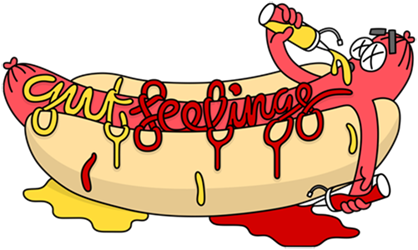
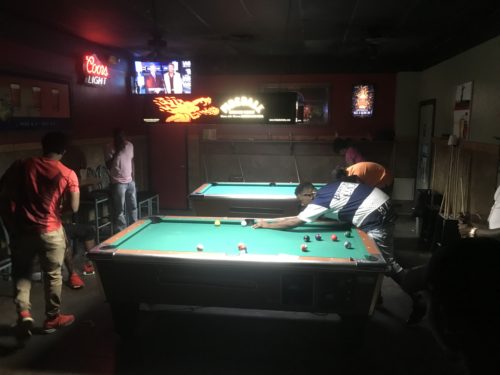
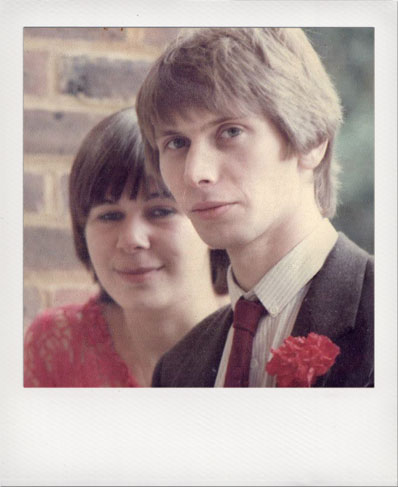
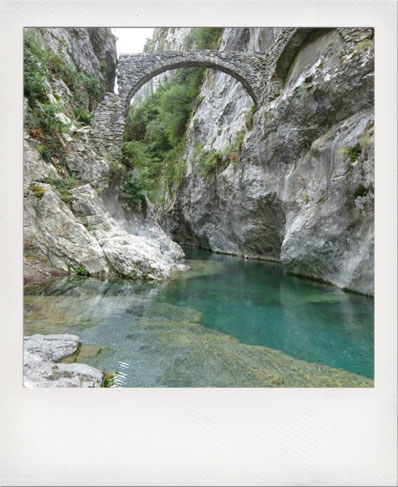
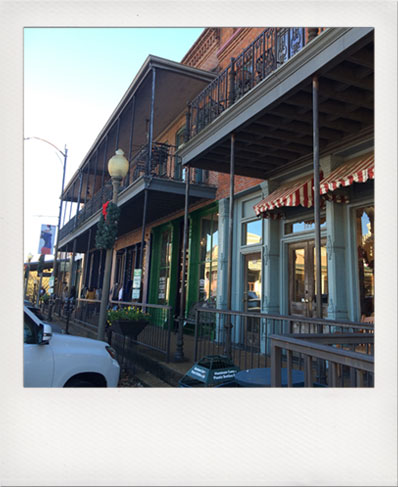
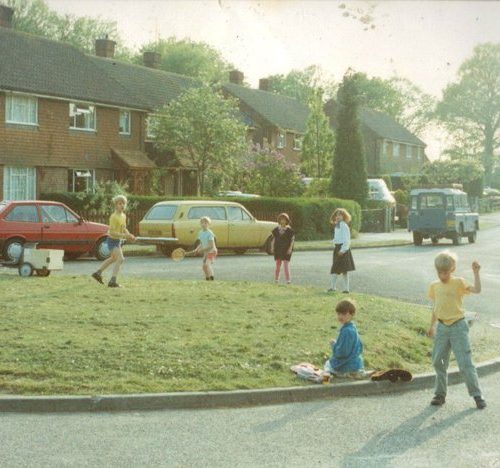
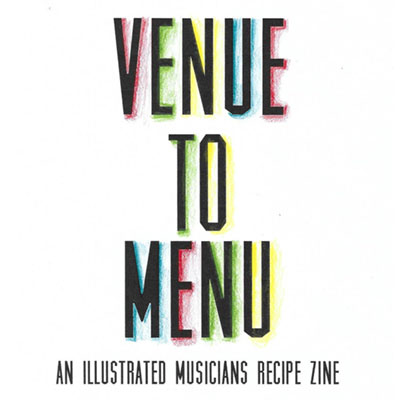
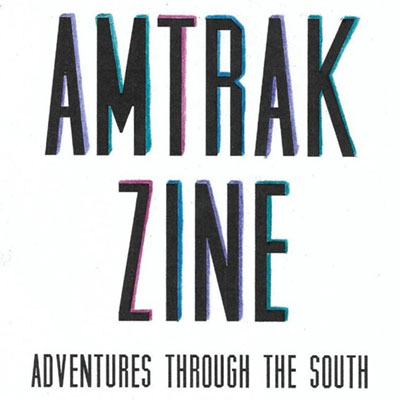
That accent of yours is going to get you into trouble one of these days Jack. But not today! Quality stuff, as usual. I’m forwarding this to a few UGA buddies; I imagine they’ll get a kick out of it.
Jack,
I love this!! I can just picture you at the Oglethorpe!! Great writing and a great adventure! The South has charmed you!! Deb
I have had the pleasure of being a speaker at events held at the Oglethorpe Club. Your observation is spot-on.